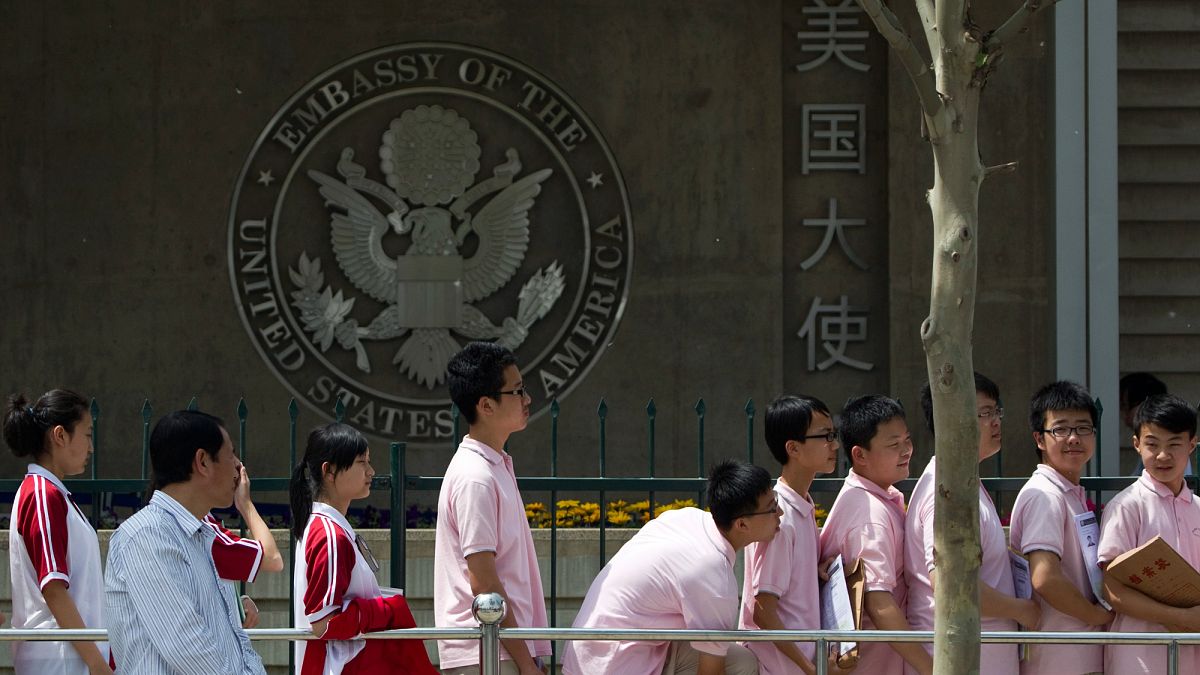Chinese students studying in the US are scrambling to figure out their futures after Secretary of State Marco Rubio announced that some of them would have their visas revoked.
The US will begin revoking the visas of some Chinese students, including those studying in “critical fields” and “those with connections to the Chinese Communist Party,” according to the announcement.
China is the second-largest country of origin for international students in the United States, behind only India.
In the 2023-2024 school year, more than 270,000 international students were from China, making up roughly a quarter of all foreign students in the US.
Rubio’s announcement was a “new version of the Chinese Exclusion Act,” said Liqin, a Chinese student at Johns Hopkins University, who asked to be identified only by his first name.
He was referring to a 19th century law that prohibited Chinese nationals from immigrating to the US and banned Chinese people already in the US from getting citizenship.
Point of tension
China’s Foreign Ministry spokesperson, Mao Ning, called the US decision unreasonable at a press conference on Thursday.
“Such a politicised and discriminatory action lays bare the US lie that it upholds so-called freedom and openness,” she said, adding that Beijing had lodged a protest with Washington.
The issue of Chinese students studying overseas has long been a point of tension in the bilateral relationship.
In 2019, during Trump’s first term, China’s Ministry of Education warned students about visa issues in the US, with rising rejection rates and shortening of visas.
Last year, the Chinese Foreign Ministry protested that a number of Chinese students were unfairly interrogated and sent home upon arrival at US airports.
Chinese state media has long hyped gun violence in the US and violent protests during the coronavirus pandemic, and portrayed the US as a dangerous place that wasn’t safe for its citizens.
The tense bilateral relationship has also meant that some Chinese students are opting to study in the UK or other countries over the US.
The Hong Kong response
Hong Kong meanwhile is seeking to draw in talent to the city with some eager to capitalise on the uncertainty facing international students in the US.
Hong Kong’s Chief Executive John Lee told lawmakers on Thursday that the city would welcome any students who have been discriminated against by American policies to study in the city.
“The students who face unfair treatment can come from different countries beyond the US. I think this is an opportunity for Hong Kong,” he said.
“We will work with our universities to provide the best support and assistance.”
That followed a widely shared post by the Hong Kong University of Science and Technology (HKUST) inviting Harvard students to “continue their academic pursuits” there after Trump said he would revoke the university’s ability to accept international students.
Other Hong Kong universities including the Chinese University of Hong Kong and City University of Hong Kong also said they would streamline or facilitate applications from international students coming from top universities in the US.
Hong Kong, a former British colony that returned to China in 1997, is a popular destination for mainland Chinese students to pursue their university degrees because of its international image and relative freedoms.
The city launched a new visa scheme in 2022 to counter the exodus of expatriates and local professionals that occurred after Beijing imposed a national security law to quell dissent and during the COVID-19 pandemic.

